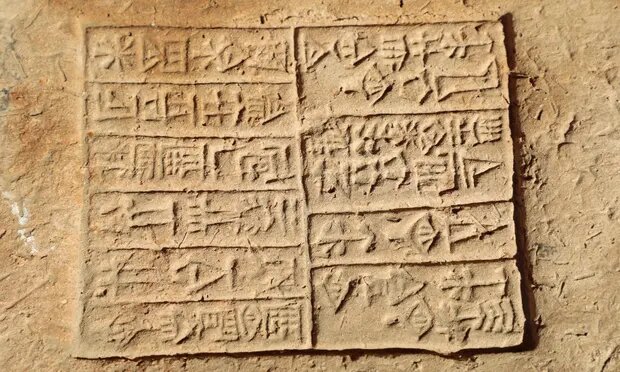Archaeologists hail find of Sumerian palace in southern Iraq

TEHRAN –Archaeologists have recently discovered the remains of a lost Sumerian palace in the ancient city of Girsu in southern Iraq.
The 4,500-year-old palace was uncovered by a team led by Dr. Sebastien Rey of the British Museum. This palace is thought to hold the key to learning more about one of the earliest known civilizations, the Guardian reported on Friday.
The British Museum's director called it "one of the most fascinating sites" he had ever been to, but the archaeologist who discovered a long-lost Sumerian temple in the ancient city of Girsu claims he was accused of "making it up" and wasting money.
The Lord Palace of the Kings of the ancient Sumerian city Girsu– now located in Tello, was discovered during fieldwork last year by British and Iraqi archaeologists. Alongside the ancient city, more than 200 cuneiform tablets were discovered, containing administrative records of the ancient city.
Rey said that when he first brought up the project at international conferences, no one believed him. “Everyone basically told me, ‘Oh no you’re making it up, you’re wasting your time, you’re wasting British Museum UK government funding’ – that’s what they were telling me,” he said.
The ancient Sumerians, who between 3,500 and 2,000 BC invented writing, built the first cities and produced the first codes of law, built Girsu, one of the earliest known cities in the history of mankind. The ruins of the ancient city were first found 140 years ago, but since then, they have been the target of theft and unauthorized excavations.
The finding is the result of the Girsu Project, an archeological collaboration, established in 2015, led by the British Museum, and funded by the LA-based Getty Museum.
Together with the discovery of the palace and the tablets, the main temple dedicated to the Sumerian god, Ningirsu, was also identified. Before this pioneering fieldwork, its existence was known only from ancient inscriptions discovered alongside the first successful excavation of the ancient city.
The ancient city's site in southern Iraq was "one of the most fascinating sites I've ever visited," according to Hartwig Fischer, the director of the British Museum.
He said: “The collaboration between the British Museum, the state board of antiquities and heritage of Iraq, and the Getty represents a vital new way of building cooperative cultural heritage projects internationally.
“While our knowledge of the Sumerian world remains limited today, the work at Girsu and the discovery of the lost palace and temple hold enormous potential for our understanding of this important civilization, shedding light on the past and informing the future.”
The Sumerians, who lived in Mesopotamia in ancient Egypt's eastern Mediterranean, made many significant technological advances, including the development of writing and time measurement.
AFM
Leave a Comment